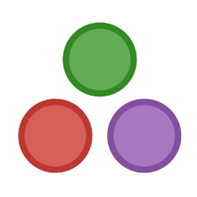|
People nowadays, especially those who don’t understand programming, tend to be opinionated about programming languages and harbor unrealistic expectations. It’s this kind of people who spill negativity towards promising projects like Julia, which are still in the process of development. The same people would probably say nasty things about Python, or R, if these languages were developed in a time when early releases of them were accessible to the world through the Internet. So, perhaps it’s not really Julia these people have an issue with...
It’s easy to criticize something, be it a book, a movie, or a programming language. It’s probably the easiest thing someone can do, other than doing nothing. However, doing nothing doesn't hurt anyone, while the negativity of criticism has a corrosive effect on whoever is exposed to it. It would be overly idealistic to think that people who have this nasty habit could be cured of it, since most likely there are deep issues that cause it to manifest, which would probably require professional help to remedy. What can be remedied fairly easily though is the effect of these criticisms, since they are based on some shallow opinion rather than facts. So, if you have heard someone who has spent a few hours learning about Julia and trying it out on his laptop dis Julia, that’s not a view you need to take very seriously. Just like every programming language, Julia has its issues and the packages out there are not in their final form. Just because something doesn't have the maturity and elegance of Pandas or Scikit-learn, it doesn't make it useless though. Julia, unlike other high-level languages, enables its users to make their own scripts easily and ensure high performance in them. Imagine trying to do that in Python! You’d need to be a computer science expert in order to guarantee high performance in a script you just put together and most likely you’d need to make use of C at one point it (Cython). However, just because some people love Julia and swear by it, you shouldn't take their word for it. The idea is that you try it out yourself, like you’d try some other language, namely through methodical studying and practice. After you've spent quite some time and have developed your own (working) programs in it, then you can have a valid opinion on it. And if you don’t like it, that’s fine. Most Julia users don’t take offense if you don’t like their favorite language. However, since these people don’t dis your language of choice, I believe it is only fair if you show some respect for their favorite language. After all, Julia is not competing with any other language. It just does its thing, like Swift, and other fairly new programming languages. Perhaps Julia is not the language of choice for the majority of data science practitioners. That’s perfectly fine. Just because it’s not as mature as Python or R, however, it doesn't mean that it’s not useful. Also, as it’s still in its early stages of development, it can only improve as time goes by. Till then, you can always use it for specific tasks, parallel to your language of choice. After all, there are bridge packages that enable that, which is more that someone could say about some other new languages, like Go. If I've tried to make the argument that Julia is a great programming language, that’s because I find new technologies interesting and useful for an ever-changing field, such as data science. It was never my intention to convert anyone to that language, merely make it more well-known. After all, data science is all about mindset and methodologies, not so much about the specific tools, which inevitably change over time.
0 Comments
Your comment will be posted after it is approved.
Leave a Reply. |
Zacharias Voulgaris, PhDPassionate data scientist with a foxy approach to technology, particularly related to A.I. Archives
April 2024
Categories
All
|

 RSS Feed
RSS Feed